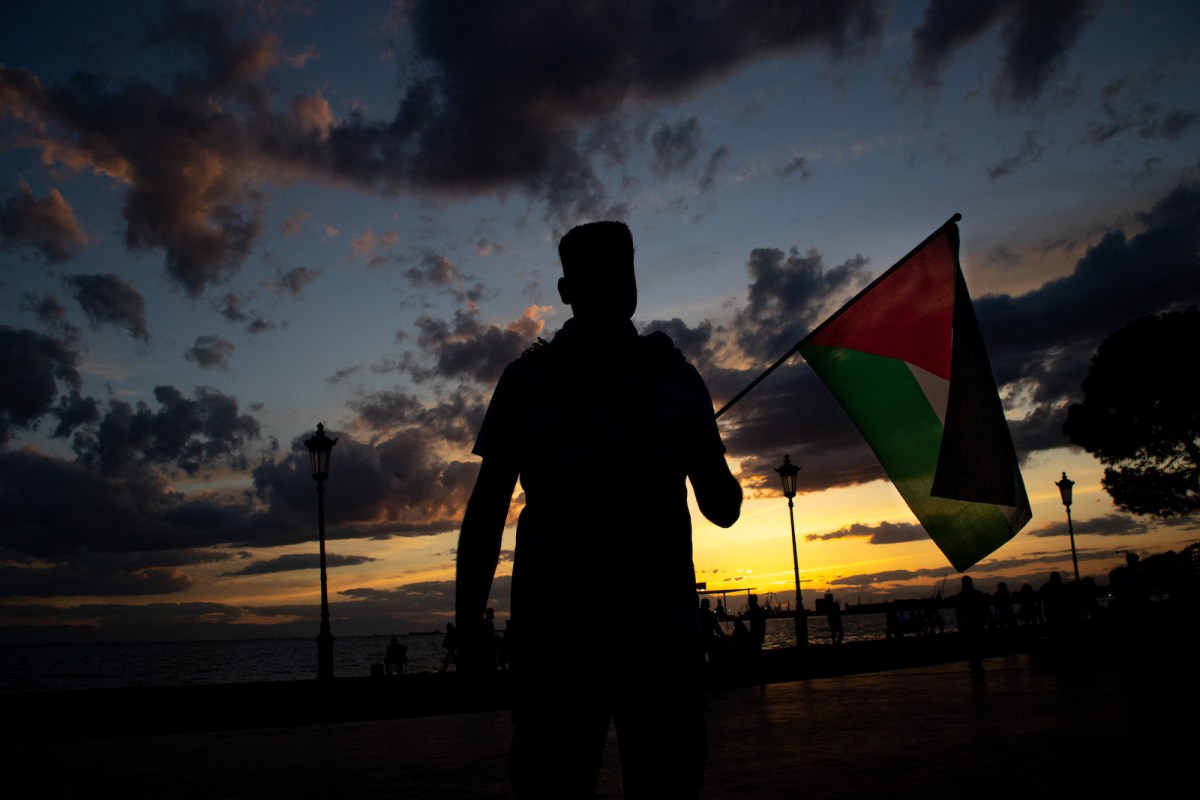Despite a campaign of disinformation, Türkiye persists in defending the Palestinian cause and tirelessly works to alleviate the suffering of the innocent people of Gaza in the face of Israel’s blockade and attacks.
As the world turns a blind eye to Israel’s war crimes amounting to genocide in the Palestinian territories, President Recep Tayyip Erdoğan, a lifelong supporter of Palestinians’ rights since the early days of his political career, brings the issue to the spotlight at every opportunity.
The president lamented on Wednesday that his commitment to the Palestinian cause was questioned. “As long as God grants me life, I will continue to defend the struggle of Palestine, and will be the voice of the oppressed Palestinian people,” Erdoğan said in a speech.
When the West almost unconditionally threw its support behind Israel when the new round of conflict broke out between Israel and Palestine on Oct. 7, Türkiye was vocal in condemning the Israeli attacks that killed more than 33,000 Palestinians, mostly women and children.
Erdoğan primarily turned to diplomacy, contacting dozens of leaders. Within one month of the eruption of the conflict, Erdoğan held talks with some 30 leaders, including Israel’s President Isaac Herzog. His diplomatic efforts reached out to everyone from the United Nations chief to Palestinian Authority President Mahmoud Abbas, and from Russian President Vladimir Putin to Pope Francis.
Three days after the beginning of the conflict, Erdoğan became one of the first outspoken critics of Israel in this new stage of the conflict, criticizing the approach of the United States and the West in general to the issue. He questioned the international community’s silence in the face of violation of human rights by Israel. Following Israel’s first major attack on a hospital in Gaza on Oct. 17, Erdoğan condemned Israel in harsh words. Türkiye declared a three-day national mourning for victims of the hospital attack starting on October 18, 2023.
Although he faced an outcry from Israel and even some allies, Erdoğan was unrepentant when he openly declared on Oct. 25 that Hamas was a resistance group, not a terrorist organization as most Western countries siding with Israel portrayed. His rhetoric was not different than his remarks regarding Hamas in the past, long before his presidency, but he found renewed popularity amid few defenders of the Palestinian cause. In the same speech, Erdoğan declared an end to the expected normalization of ties with Israel, scrapping his plans to visit Israel. The president then invited all countries “with a conscience” to press on the Netanyahu administration to end the atrocities in Gaza. He also sought to mobilize the United Nations Security Council to ensure a cease-fire in Gaza, decrying the delay in the face of children being killed.
On Oct. 28, Erdoğan drew an enormous crowd in Istanbul for the Great Palestine Rally. The event was a sign of growing public support in Türkiye for the Palestinian cause though it was not the first protest of Israel’s attacks. Before and after the event, Turkish citizens took to the streets regularly to denounce Israel. On social media, Turks launched campaigns to raise awareness, with hashtags such as “For Palestine” and “United4Palestine.”
The president raised the issue at every platform, from a summit of the Organization of Turkic States (OTS) to an extraordinary gathering of the Arab League-Organization of Islamic Cooperation (OIC). He also proposed Türkiye’s “guarantorship” for a two-state solution to the issue.
On the legal side, Türkiye joined other countries in efforts to implicate Israel for its crimes against Palestinians before the International Court of Justice (ICJ). In February, Türkiye presented its findings on Israel’s wrongdoings in a case brought before the international legal body by South Africa. Erdoğan also hosted Palestinian leaders, from Mahmoud Abbas to Hamas’ Ismail Haniyeh.
Erdoğan is a popular figure of the Palestinian cause, especially after his well-documented confrontation with then-Israeli President Shimon Peres in 2009 during the World Economic Forum. Erdoğan’s candid criticism of Israel’s attacks earlier that year disturbed Tel Aviv and led to a deterioration of ties between the two countries. One year after this incident, Israeli troops boarded a Turkish ship carrying aid to Gaza and slaughtered nine Turkish activists aboard during the infamous “Mavi Marmara incident.” Türkiye recalled its envoy to Israel and later cut off diplomatic ties with Tel Aviv.
dailysabah.com
